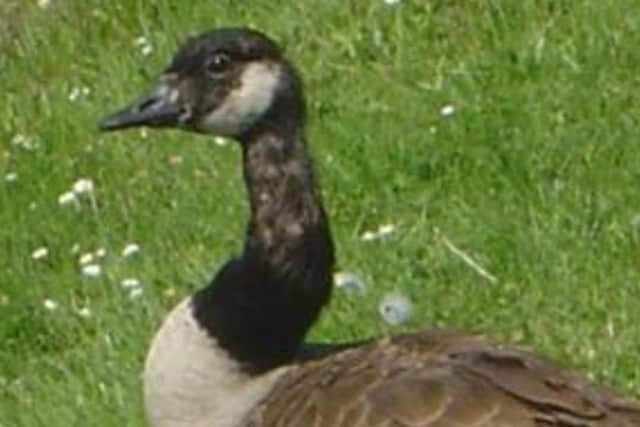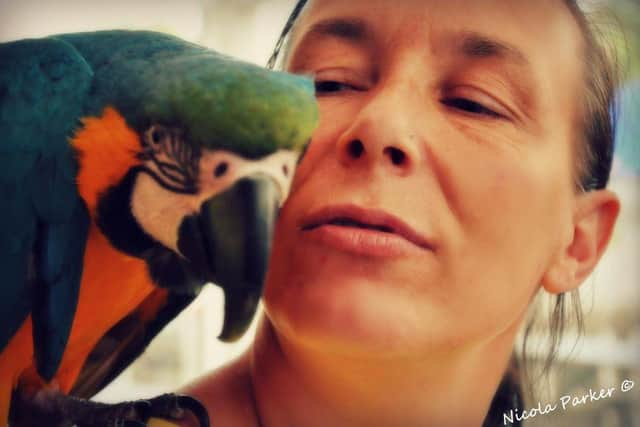Mansfield wildlife rescuer warns 'do not touch birds' after goose with avian flu -like symptoms found at Clipstone
and live on Freeview channel 276
Cheryl Martins who runs the Mansfield Wildlife Centre was called to the Vicar Water beauty spot where the Canadian Goose was showing symptoms similar to the disease.
The viral illness spreads between birds, and in very rare cases can spread to humans.
Advertisement
Hide AdAdvertisement
Hide AdSome of the main avian flu symptoms in birds include lethargy, head and body tremors, droopy wings, loss of balance and coordination, and in the case of the goose Cheryl had to remove, a watery discharge in its eyes and mouth.


Cheryl warned: “Please be aware when out walking in the area and do not touch any of the birds, wash your hands thoroughly and remove any footwear outside once you get home.
"The virus can be transferred to other birds via bird droppings on footwear or clothing and hand contact, so please wash your hands before handling your own pet birds if you have them and remove any footwear, give them a good clean before visiting any other outdoor areas where birds are present to try and prevent the spread of the virus.
“Sadly, this goose will be put to sleep, as there is no cure for the virus and it is a slow and painful death for any birds who become infected.”
Advertisement
Hide AdAdvertisement
Hide AdShe added: “We need the public to be aware the illness is in the area, it can be transmitted via droppings on the birds feet or by bodily fluids so touching dead or dying birds should be avoided.”


The Chad reported in February how 50 birds with suspected avian flu had been removed from Kingsmill Reservoir
If you suspect any type of avian influenza in poultry or captive birds they must be reported immediately by calling the Defra Rural Services Helpline on 03000 200 301.
If you find dead wild waterfowl, swans, geese or ducks or other dead wild birds, such as gulls or birds of prey, you should report them to the Defra helpline (03459 33 55 77).
Advertisement
Hide AdAdvertisement
Hide AdThe Government also warns people to not touch or pick up any dead or visibly sick birds that you may find.
For further information see the Government’s advice at https://www.gov.uk/guidance/avian-influenza-bird-flu
